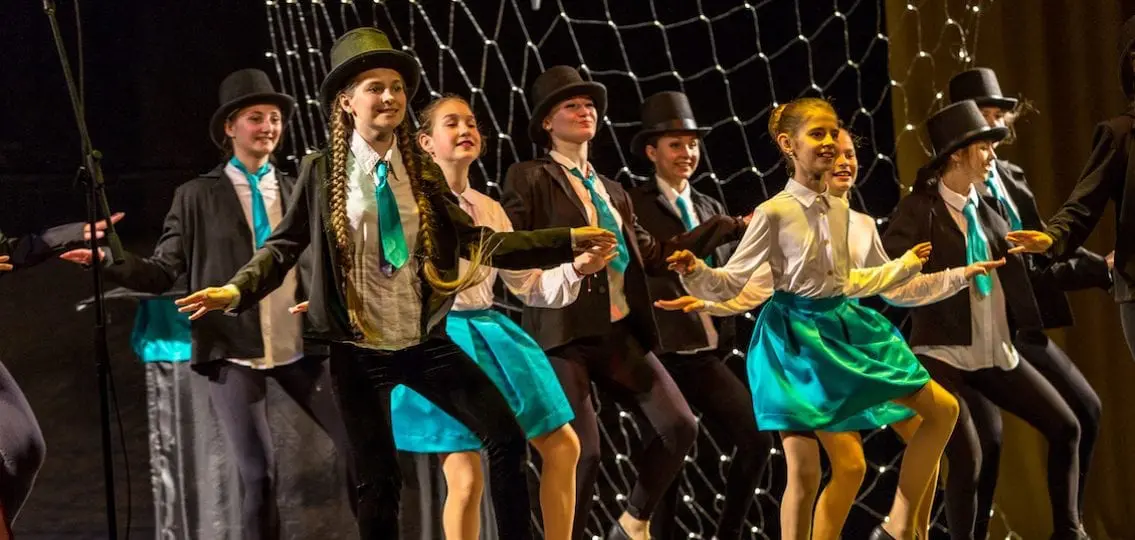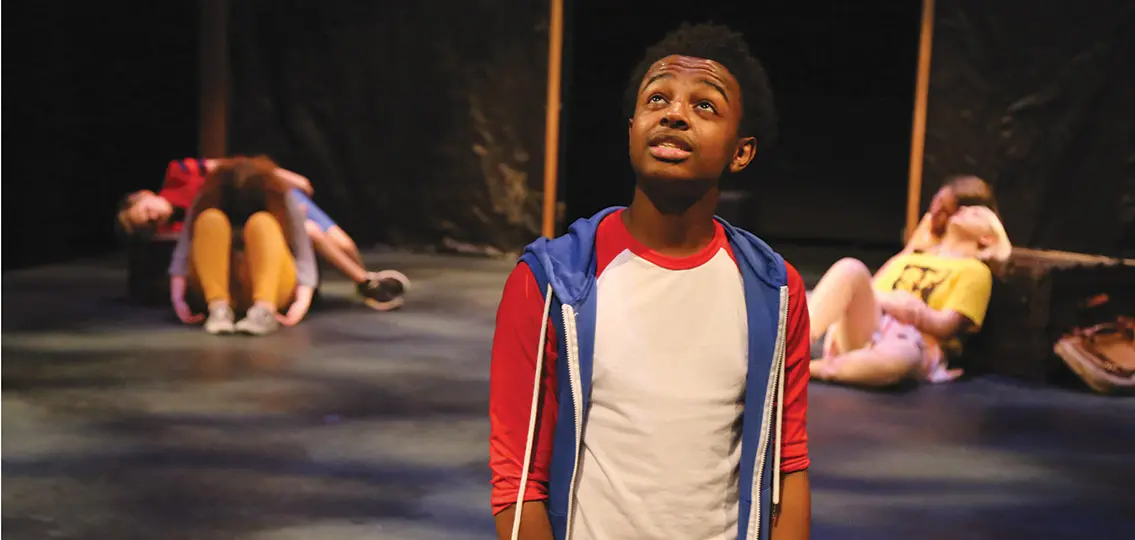Last summer, I took my 12-year-old son to a Broadway-quality production for the first time. He was skeptical. “Will they just break into song? Not interested.”

We were seeing The Sound of Music; impromptu singing was inevitable. I bribed him with brunch beforehand. Post-show, his review was tween-style glowing: “That wasn’t as bad as I expected.”

Pamela DiPasquale, director of education for Cleveland Play House, knows firsthand the benefits of going to the theater with teens. “I have two busy teens; family dinner times are hard to schedule,” says DiPasquale. “But we have these four theater tickets on Sunday afternoon. There is nothing more special than making an event of it and spending the time together.”
Thoughtful Discussions
Whether you start your teens with a lighthearted performance or one that’s more thought-provoking, theater can open up discussions you might not have otherwise.
[adrotate banner=”128″]When Cleveland Play House brought a production of The Diary of Anne Frank to the stage, DiPasquale saw the effect it had on families. “Families would see the show together. I’d watch them walk in in a hurry.” But after the show, she says, “You could see the transformation — arms around shoulders, handholding. No matter what the performance, live theater can open up a new world for teens in a gentle and safe way.”
The results are not just anecdotal. In 2017, Dr. Jay Greene, head of the department of education reform at the University of Arkansas, studied the link between cultural activities and student outcomes, measuring academic success as well as personal development. “On average, the students in the study who went to live theater reported that they were more likely to have a higher tolerance for people different than themselves as well as a higher willingness to consider how others may be feeling about situations,” says Molly Beck, who co-authored the study with Greene. Studies like these reinforce the importance of theater as a way to open up new ideas to teens.
Sparking New Interests
You know your child best. What interests them? Are they into sports? Seek out a play that features a sports hero. Maybe they’re more interested in the music or art direction that goes into creating the whole experience.
Maybe that new interest is the theater itself. “We took my son to see Wicked when he was 12,” says parent Sue Hamric. “It was an amazing performance, and the entire experience really sparked our interests. We decided as a family to get inexpensive season tickets so that we could enjoy productions more often. Going to the theater gave us an activity to look forward to as a family — and often gave us something to talk about for days. Sometimes we’d even buy the soundtracks.”
Sharing Experiences
DiPasquale describes her theater time with her kids as “sacred,” with a few hours sitting side by side followed by coffee or dinner. “It’s important to carve out time afterwards to make sure you’re not rushing home, but you’re taking the time to talk about what you’ve seen. What did you like? What made you laugh?”

Hamric’s son is now almost 20, but the memories continue: “The time we spent raising our son flew by so fast, and we learned early on that sharing experiences together made for lifetime memories.”




